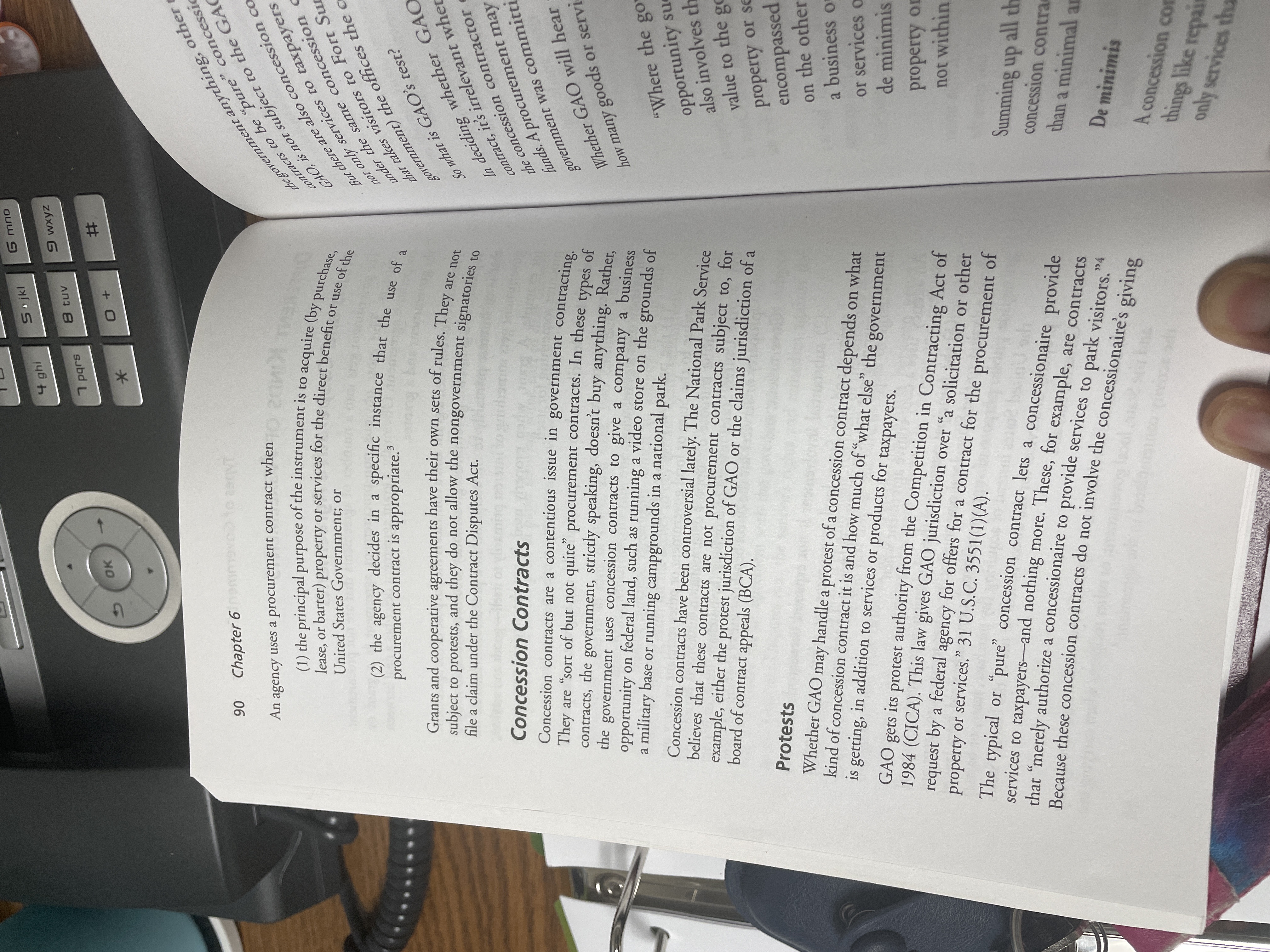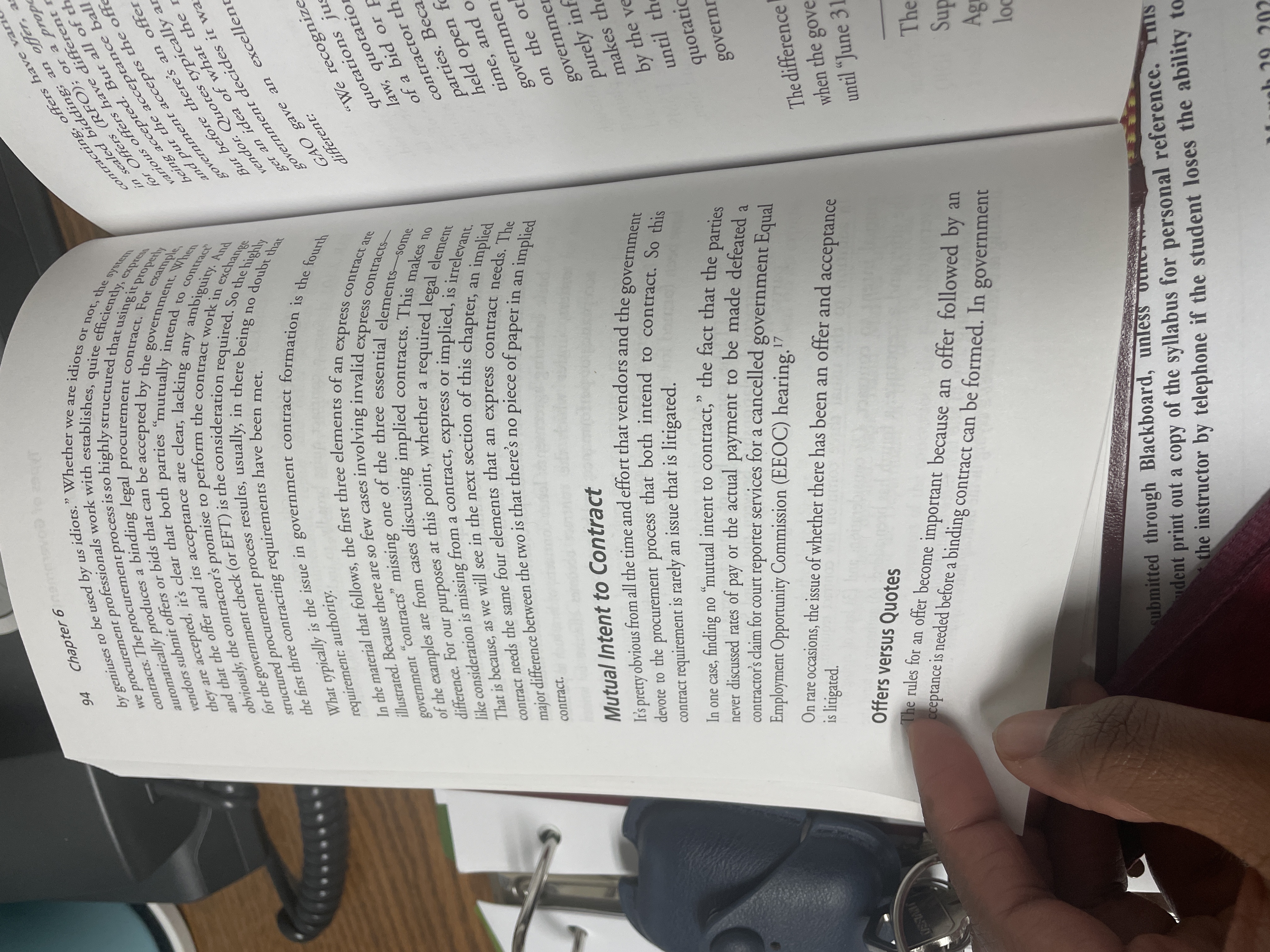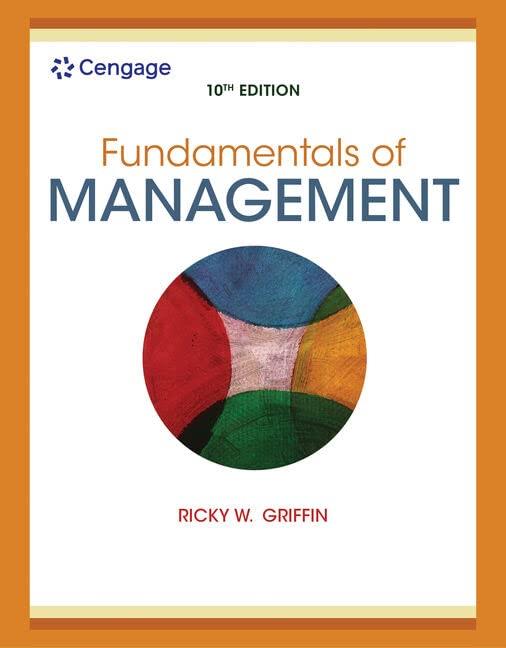Answered step by step
Verified Expert Solution
Question
1 Approved Answer
For the writing assignment, we must write about a subject or subjects that we learned this semester and how we believe this subject/subjects will help
For the writing assignment, we must write about a subject or subjects that we learned this semester and how we believe this subject/subjects will help in our chosen career path.
My subject is: Types of Government Contracts. I will post an example from the book that can be used:



7 pqrs * 8 tuv 0 + wxyz # CIM ey Chapter NE ACM POINT AP ferent things under so many legal instruments to get those g some sort of deal between will see, not all agreements s. Two common ones are ency will work with another in items repetitively. an agency sets up with a Whether a document the for several reasons. For the Contract Disputes hent that is not subject d remedies against the us of this chapter is the types of agreements ion between generic hapter next discusses ired for forming an contracts, the kinds vertently obligating Types of Government Contracts DIFFERENT KINDS OF AGREEMENTS Grants and Cooperative Agreements 89 The government gets into a number of agreements that are not procurement contracts. The most obvious non-procurement agreement is a grant or cooperative agreement. Obviously, a grant agreement describes a deal between the government and a grantee. The difference between a grant and a contract is the purpose of the agreement. Typically, in a grant, the government gives money to someone to do something Type is of interest primarily to the recipient. In a procurement contract the something of interest primarily to itself-goods and services, government gets for example. A grant, when properly used, is not the way the government procures something for itself. agreement, or a procurement contract. Federal law describes when an agency should use a grant, a cooperative An agency uses a grant when (1) the principal purpose of the relationship is to transfer a thing of a public purpose of value to the State or local government or other recipient to carry out support or stimulation authorized by a law of the United States instead of acquiring (by purchase, lease, or barter) property or services for the direct benefit or use of the United States Government; and (2) substantial involvement is not expected between the executive agency and the State, local government, or other recipient when carrying out the activity contemplated in the agreement.' An agency uses a cooperative agreement when (1) the principal purpose of the relationship is to transfer a thing of value to the State, local government, or other recipient to carry out a public purpose of support or stimulation authorized by a law of the United States instead of acquiring (by purchase, lease, or barter) property or services for the direct benefit or use of the United States Government; and (2) substantial involvement is expected between the executive agency and the State, local government, or other recipient when carrying out the activity contemplated in the agreement. Tor personal reference. e student loses the ability to by 11:59 p.m. March 29, 2023. on a subject or subjects you your chosen career
Step by Step Solution
There are 3 Steps involved in it
Step: 1
Writing Assignment Types of Government Contracts and Their Impact on My Career Path Introduction This semester one of the most enlightening subjects I studied was Types of Government Contracts Underst...
Get Instant Access to Expert-Tailored Solutions
See step-by-step solutions with expert insights and AI powered tools for academic success
Step: 2

Step: 3

Ace Your Homework with AI
Get the answers you need in no time with our AI-driven, step-by-step assistance
Get Started


